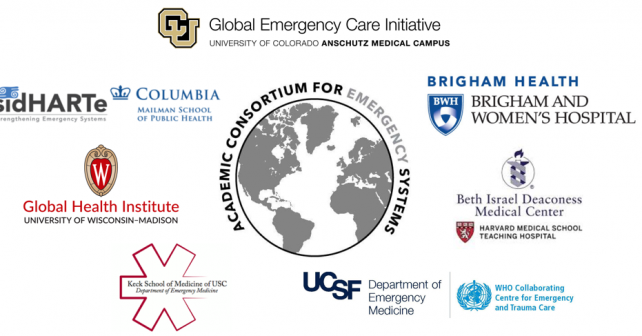
A decade ago, the World Health Assembly adopted Resolution 60.22 titled “Health Systems: Emergency Care Systems.” This resolution, passed by the member states of the World Health Organization (WHO), created a framework outlining a path to improving access to emergency care worldwide. Within the WHO, the Emergency, Trauma, and Acute Care program is “dedicated to strengthening the emergency care systems that serve as the first point of contact with the health system for so much of the world, and to supporting the development of quality, timely emergency care accessible to all.”
Explore This Issue
ACEP Now: Vol 38 – No 10 – October 2019This program has been transformational in focusing the world’s eyes on emergency care. The program’s advocacy was manifest in the successful adoption in May 2019 of World Health Assembly Resolution 72.16, “Emergency care systems for universal health coverage: ensuring timely care for the acutely ill and injured,” which brought further clarity and specificity to the implementation of emergency care in resource-limited settings.
More explicit integration of emergency care into health systems and universal health care coverage is essential to meeting the WHO Sustainable Development Goals. In an effort to support trainees who are learning how to engage in these efforts, the Academic Consortium for Emergency Systems (ACES) was established in 2018. This group is made up of six US-based academic medical centers with a substantial focus on global emergency care development. The overall goals of the consortium are to organize the aforementioned academic medical centers’ collaborative efforts to train the next generation of emergency care advocates and implementers; support our partner countries’ ministries of health, local universities, and other institutions in their efforts to strengthen their emergency care systems; and support the work of the WHO Emergency, Trauma and Acute Care program. The consortium’s original organizing principle was to coordinate trainees’ education and programmatic implementation for academic programs that could not independently fully support such efforts. Consortium objectives include:
- Facilitate academic partnerships in a new and emerging field of emergency care systems development with local academic partners.
- Contribute to the body of knowledge for all activities related to emergency care systems in collaboration with consortium partners, including developing professional papers, technical reports, databases, and online tools.
- Support consortium partners’ efforts via provision of volunteers, academic consultation, and grant preparation to promote research and field implementation projects.
- Ensure a standardized, trained, and accountable workforce that is qualified to conduct implementation science research of emergency care solutions in resource-limited settings.
- Provide coordination and continuity in the training of global health faculty, fellows, and learners.
The consortium seeks to provide trainees with consolidated technical expertise and local implementing organizations with an organized workforce ready to promote improvement in the quality of and access to emergency care worldwide.
Two ACES-led events at ACEP19 will mark a paradigm shift in the way ACEP approaches capacity building in emergency care systems. By partnering with a consortium of academic medical centers and numerous other international professional organizations, ACEP hopes to advance the discipline of emergency care worldwide and to promote the recent landmark resolutions adopted by member states at the World Health Assembly.
In conjunction with ACEP’s International Section and the ACEP International Ambassador program, ACES will offer the WHO’s Basic Emergency Care Facilitator Course. It was developed by WHO and the International Committee of the Red Cross, in collaboration with the International Federation for Emergency Medicine, as a syndrome-based content and skills training intended for frontline health care providers managing acute illness and injury with limited resources. Additionally, ACES will offer the Fellows Bootcamp for Understanding Emergency Systems, a one-day primer focused on postgraduate trainees in global health that will review core concepts for building emergency care systems in resource-limited settings. More information is available.
Pages: 1 2 | Single Page




No Responses to “ACEP Supports Two New International Emergency Medicine Courses at ACEP19”